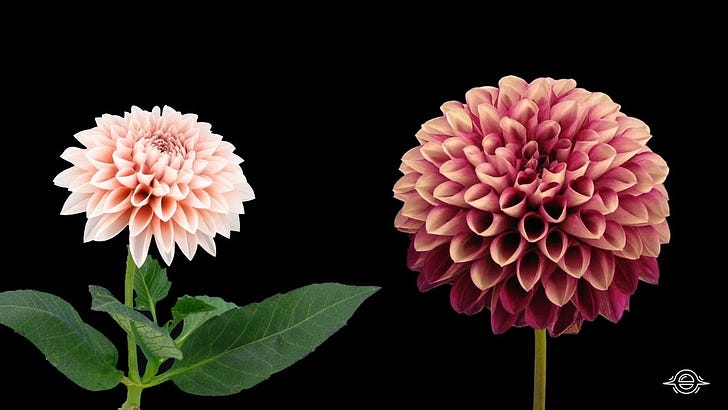My desires are holy, and so are yours.
Our capacity for desire and ecstasy are primal and sacred. They connect us to the rhythms of the physical world around us— the pull of animal lust, the ebb and flow of the tides, the rushing explosion of flower buds opening.
But our desires often scare the hell out of us, too. Why? Because anything that blooms must die. We don’t get the full glory of one without submitting to the inevitability of the other.
Which means our pain and our death are holy, too. There’s a real mindfuck for you.
Our cultural unwillingness to sacralize the cycles of birth and death has left us with few skills or instincts for understanding our desire, or making constructive use of our pain. I’d offer a flippant “thanks a lot, guys” to the Puritans and the Catholic Church, but they aren’t the only ones responsible for this mind/body split we’ve wed ourselves to over centuries. Hello, the practice of full purdah because seeing a woman’s body on the street might inflame a man’s desire and corrupt him! Howdy, the pursuit of “spiritual transcendence” through asceticism and intellectual philosophizing!
Instead of understanding our physical and emotional desire, we fixate on sterile romantic mythologies, unrealistic physicalities, procreation, and sin. We cannot be wild, naughty, wanton, unrepentant, shameless, or loud while in our imperfect, awkward, human bodies. We aren’t taught to ask for what we want, investigate our secret longings, or take responsibility for our emotional baggage. Just be as conventionally attractive as you can manage, find your forever mate, and live happily ever after.
Meanwhile, we avoid the discomfort and pain of living in a finite reality, which requires choices, consequences, conflict, and loss, like it’s our job. We champion the individual over community, accomplishment over connection, and economic achievement over emotional intelligence. We pretend as if sickness, poverty, and death are moral failings, but if you’re rich enough or find the right pill you can escape everything. Then we wonder why we end up feeling sick, compulsive, disconnected, riddled with anxiety, and still die anyway.
This is pathological disembodiment. Integrity can’t live here.
To live with integrity, we have to develop a curiosity about our desires and our pain. We have to look beneath the surface of them to ferret out their origins and their truth. Psychologist Carl Jung wrote that all desire arises from a sacred source, even if our inability to understand or make space for that desire twists and distorts it. Of an alcoholic patient, Jung wrote:
His craving for alcohol was the equivalent on a low level of the spiritual thirst for wholeness, or as expressed in medieval language: the union with God.
If you prefer a more secular take, researchers now suggest that the most successful treatment for addiction is deep human connection. Is there a physical aspect as well? Yes. But if the underlying sickness were entirely physical we would have found a pill to fix that sickness long ago. There is no pill that manufactures deep attachment or takes away our need for it, nor is there any drug that removes the inherent pain of being alive.
Straight out of college I spent years working as a social worker with domestic violence victims and chronically homeless women. Gallows humor will get you through in that sort of work, and we had a running joke that there’s no greater drama queen than a heroin addict with a hangnail. It’s like the world is ending.
Chemically, heroin is a pain suppressant. Take it long enough and you damage your natural capacity to adequately process pain, so even the simplest discomfort makes you feel like you’re dying. Recovery doesn’t involve just surviving physical cravings; it involves slowly relearning how to experience and contextualize all the inevitable physical and emotional discomfort of being human.
You don’t have to be a heroin addict, however, to habitually distance yourself from the inevitable physical and emotional discomfort of being alive. You just have to repeatedly choose immediate gratification and avoidance over dealing with what is. Feeling exhausted, sick, sad, lonely, angry, or lost? Turn on the tv. Scroll on the phone. Have a snack. Pour a drink. Message that person online that gives you butterflies, instead of telling your partner next to you on the couch. Anything to distract yourself, or convince yourself that the answer to your pain and discomfort is somewhere outside of you.
To quote my friend Rob Brezsny, “there are both degrading desires that enslave you and sacred desires that liberate you.” Similarly, I would submit, there is both necessary pain that strengthens and elevates and unnecessary suffering that weakens and isolates.
Only you can discover your most sacred desires. Only you can heal, or carry, your necessary pain. There will be ecstasy and mistakes along the way, but, oh! How alive you’ll be!
Alive humans are gloriously dangerous to the status quo. Be gloriously dangerous, my love.
Thank you for reading, my friend. Please help Let Your Life Speak grow by sharing, commenting, liking (click the heart!), and subscribing below if you haven’t yet. This is a grassroots effort, which depends, in large part, on you and your willingness to spread the word. Or my words, as the case may be. :)
I’ll keep writing them and you keep spreading them. Deal? XO, Asha




I'd call this a 'slam dunk' of a newsletter!